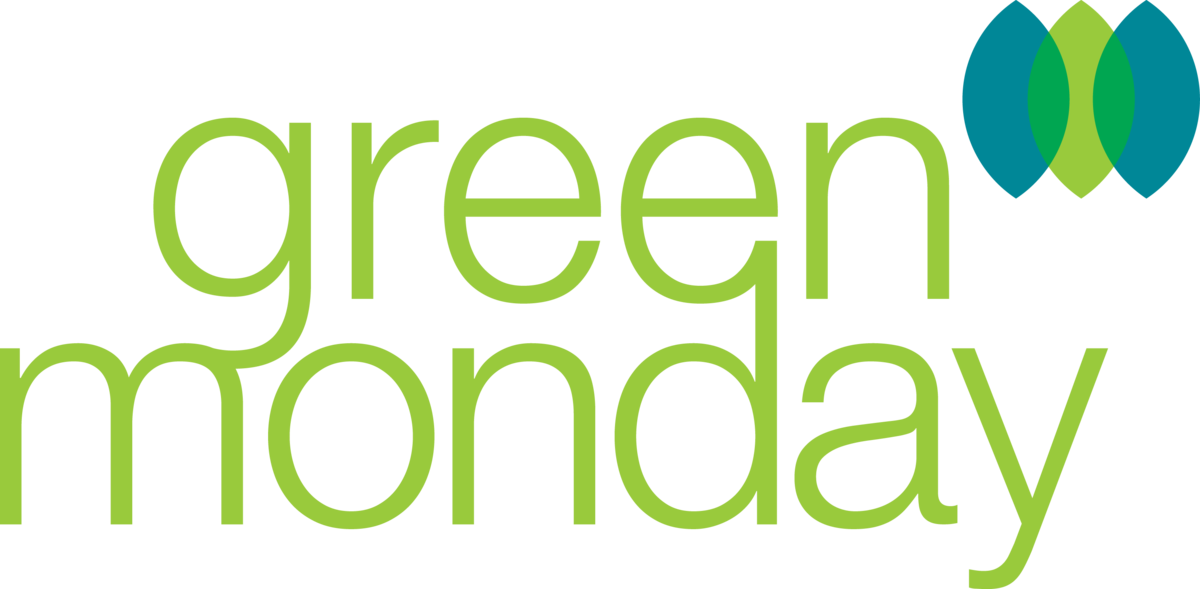When he discovered the connection between livestock and climate change, David Yeung decided it was time to make a difference
This story by Manta Klangboonkrong and Wisan was published in the October-November issue of Elite+ magazine.
Photos courtesy of Green Monday
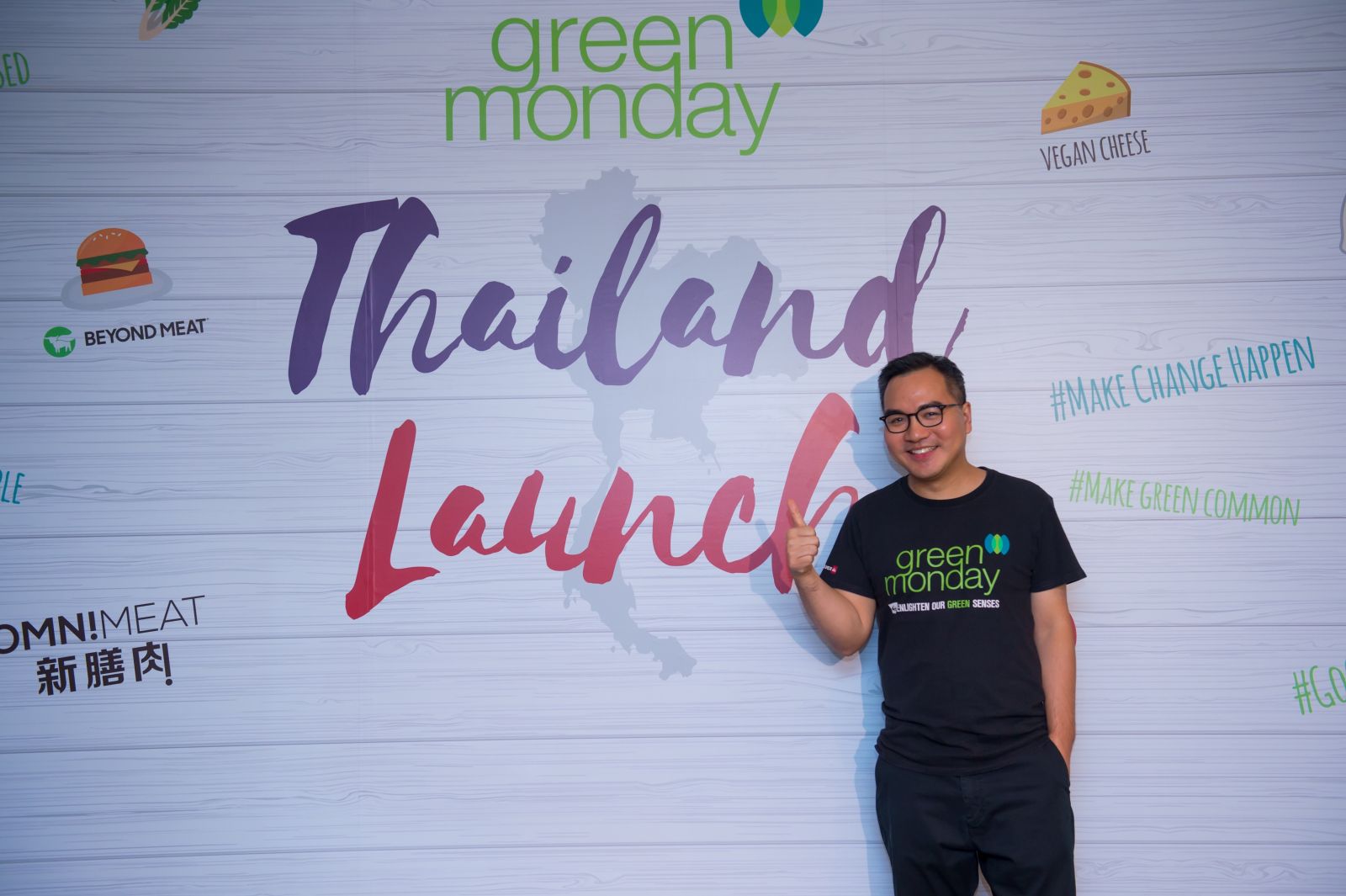
Green Monday founder David Yeung had already been vegetarian for five years when in 2006 he began to hear about the link between climate change and the meat industry. Originally choosing not to eat meat out of compassion for animals and a desire to avoid causing them suffering, he was shocked by UN figures that claimed the livestock industry produced more carbon emissions than all forms of transport combined.

As David looked deeper, he came to understand that this was an issue that went beyond the industry’s carbon footprint. The livestock industry’s sheer demand for and consumption of land, water and other natural resources meant that it simply was not sustainable, and he was left in little doubt that our food system as we know it would eventually collapse if we continued to eat in the way we have become accustomed to.
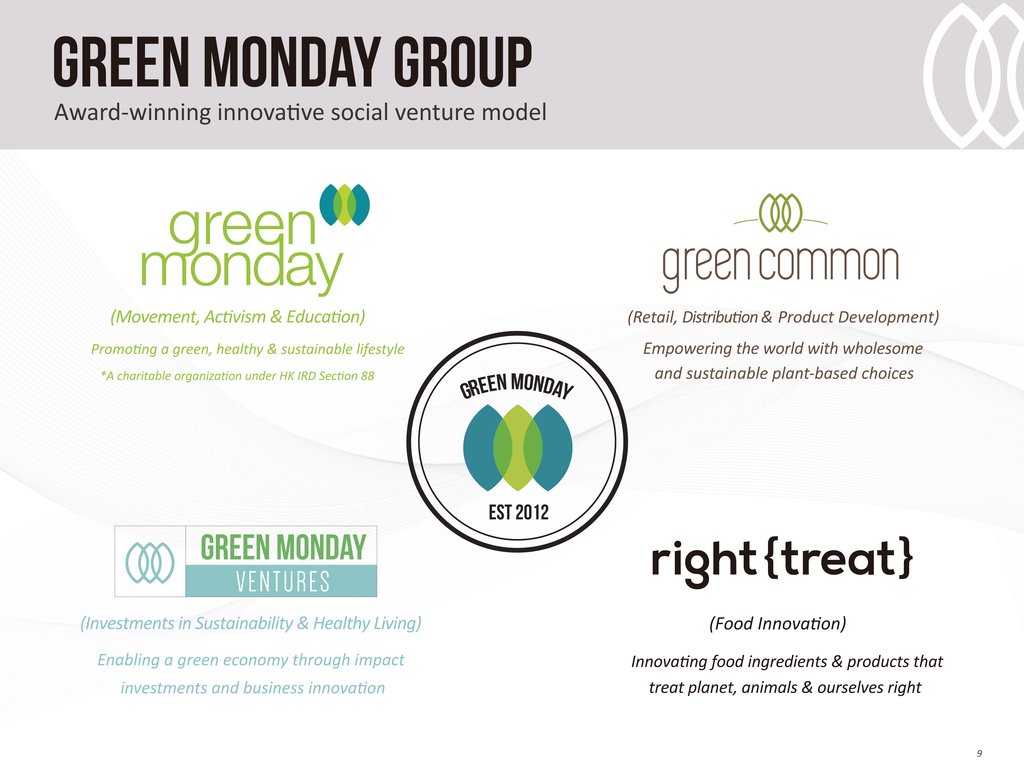
Despite these realities, it still seemed to David that people – especially in Asia – were reluctant to confront such inconvenient truths, to take the title of the 2006 documentary film centred around Al Gore’s campaign to educate people about global warming. The idea of turning these inconvenient truths into a motivation for becoming vegetarian was frequently met with silence, David says, as though it made more sense to wait for governments or scientists to take action.

But David was not the sort of person to wait for someone else to take the lead. Founding Green Monday in 2012, he set out to do what few organisations do: to change not just the supply or demand side of the problem, but tackle both at once. Green Monday took on a mission, encouraging anyone – at any level and on any scale – to entertain the idea of eating less meat.
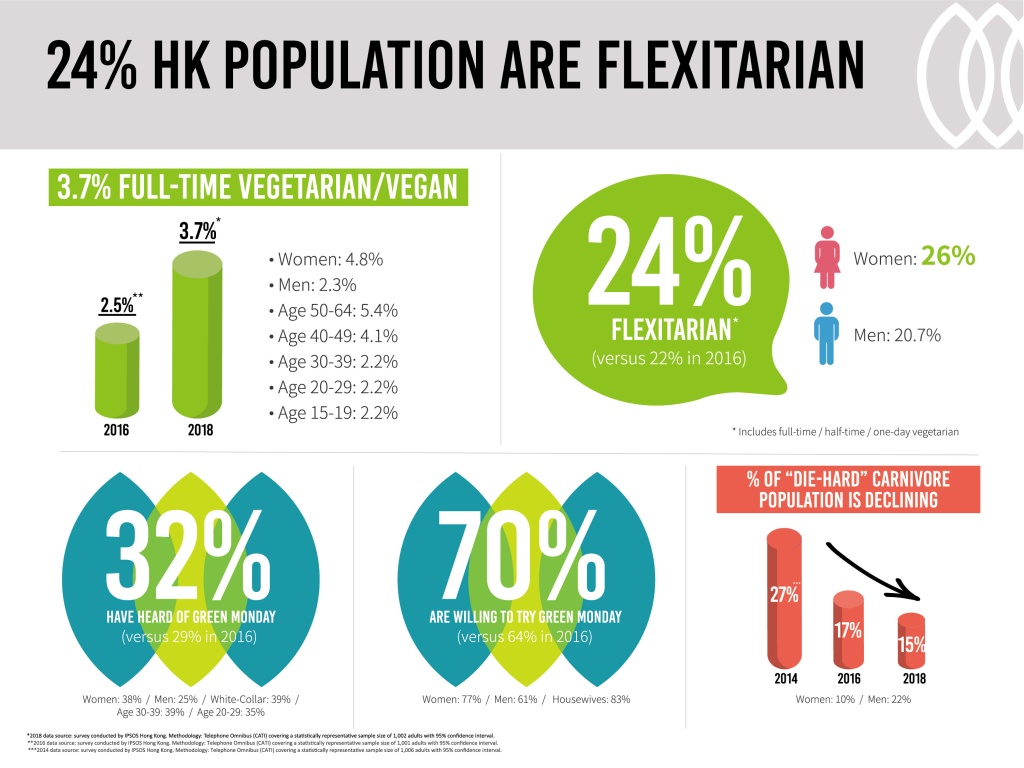
“It doesn’t have to be all or nothing,” says David. “Anyone can launch a Green Monday – or indeed Green Friday, Green Sunday, Green Lunch, Green Dinner, whatever – without paying anything or involving me or my organisation at all. The key, just like getting a regular fix of exercise in your life, is to make it a routine.”
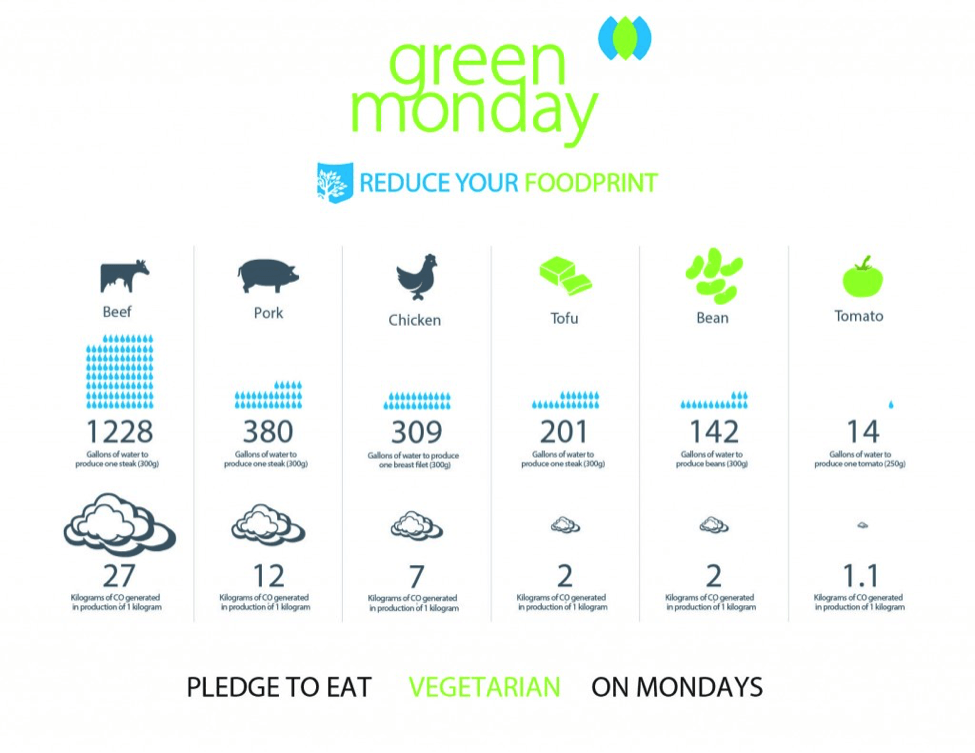
On the supply side, meanwhile, David established the combined restaurant and supermarket chain known as Green Common. Its mission has been to source the most innovative plant-based food products the world has to offer – and representing and distributing them to restaurants and supermarkets across Asia – and in 2015 it made history by being the first company to take the now widely celebrated Beyond Meat brand outside the US to Hong Kong.
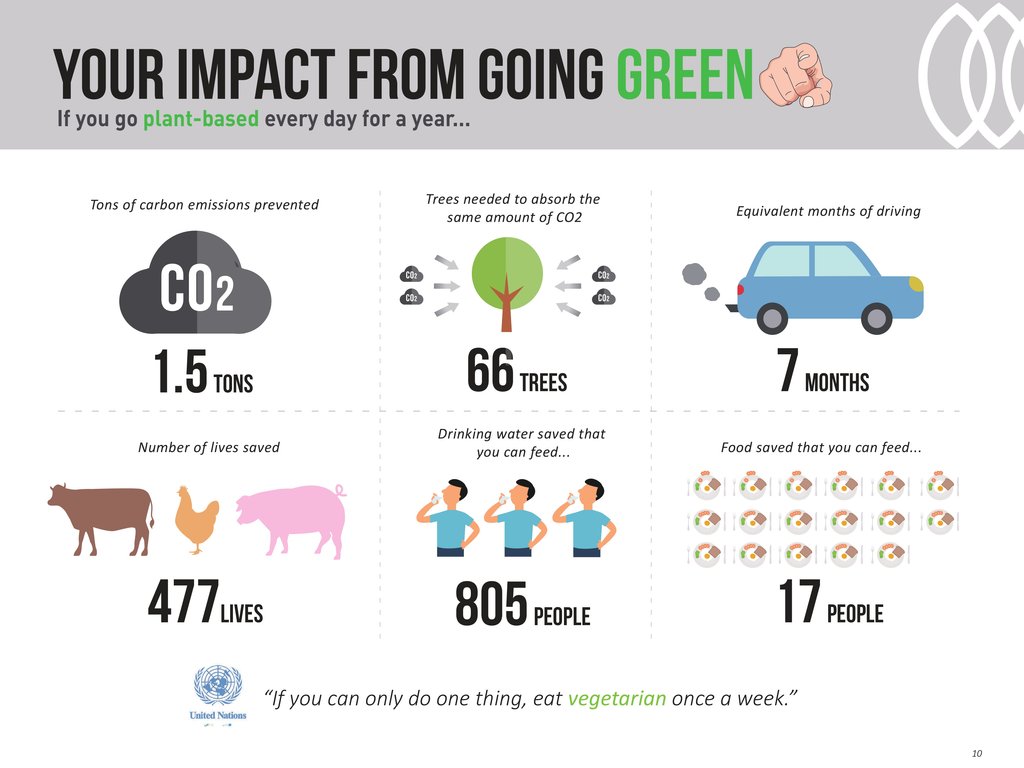
Beyond Meat itself has been a remarkable success story, he says, enjoying the most successful initial public offering (IPO) in some 20 years. He stresses that organisations like Beyond Meat – just as with his own Green Monday and Green Common – are founded out of a mission-driven mentality and a desire to make a difference, rather than merely being businesses that exist to make money. That’s why, he says, Beyond Meat appreciated his “crazily ambitious target” of sparking a change in Asia’s perception of vegetarianism. At the time there was no real market for plant-based foods, he says, with everyone involved simply trying to make change happen. But it was that “crazily ambitious” pursuit of a greater good that led to him beating even neighbouring Canadian businesses in taking Beyond Meat’s products overseas.

If there was one shortfall of Beyond Meat’s offerings in David’s eyes, however, it was that the meat alternative was solidly focussed on western cuisine. There remained a gap in the market for a meat substitute product designed with the Asian palate and Asian food market in mind, and OmniMeat was the product developed to fill that gap.
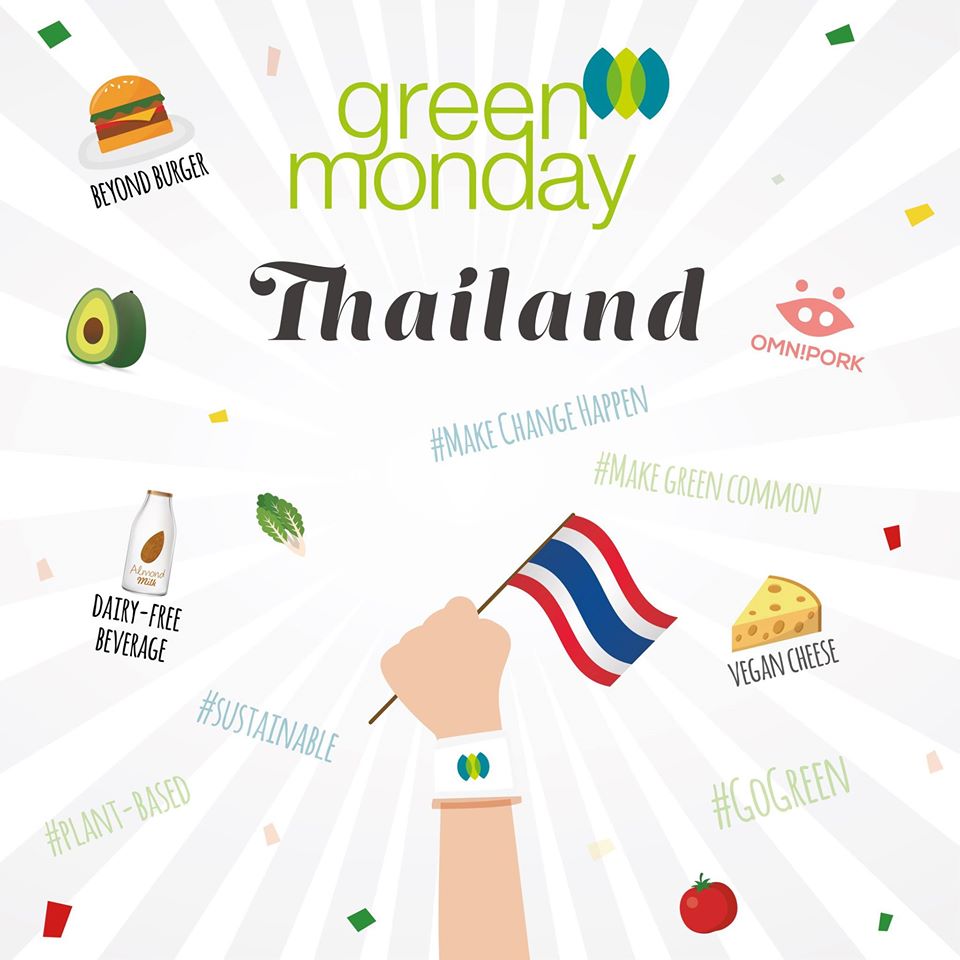
As anyone who has eaten their way around Asia can testify, regionally, pork wins out in the popularity stakes by far. More than 60% of all the meat eaten in China is pork, he says – that figure rises to over 70% in Vietnam, and in Thailand pork is far and away the top choice when it comes to meat consumption.
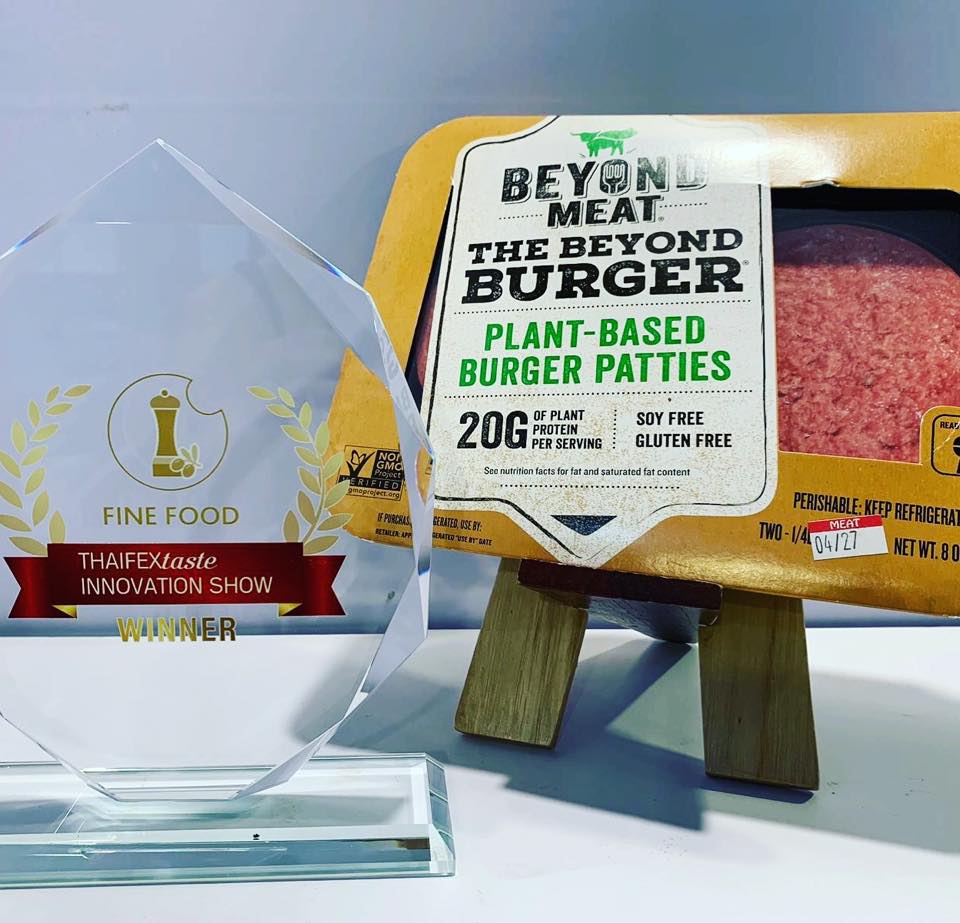
Appealing to that was behind OmniMeat pioneering a plant-based meat alternative that replicates the taste and texture of pork. The world’s first plant-based “pork” for Asian cooking, it is marketed in Thailand – where it has newly launched – as OmniMeat in an effort to “make sure we’re catering to everyone” and appeal to Thailand’s sizeable Muslim population.
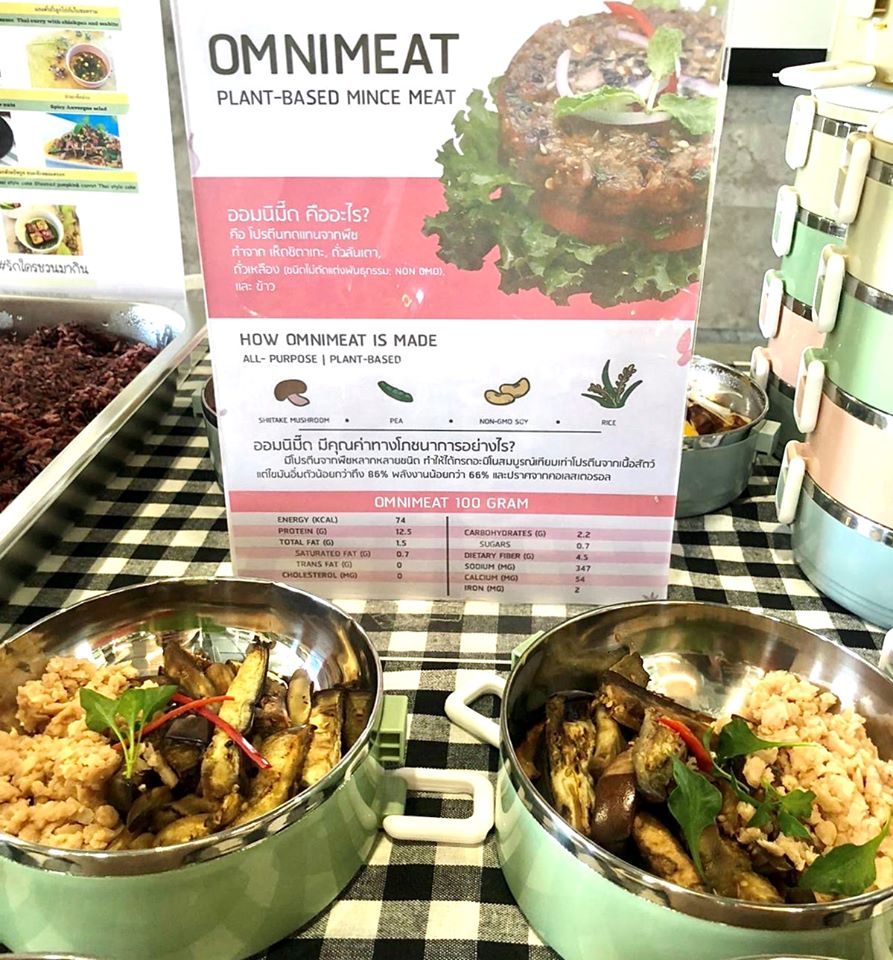
In development since the end of 2016 – and the work of a pioneering group of Canadian food scientists who were the first to work on alternative proteins as far back as the mid-1990s – OmniMeat is currently sold in a versatile “minced meat” format that is ideal for using in stir-fries alongside vegetables and tofu, being made into dumplings and meatballs, and in a wide variety of other popular Asian dishes.
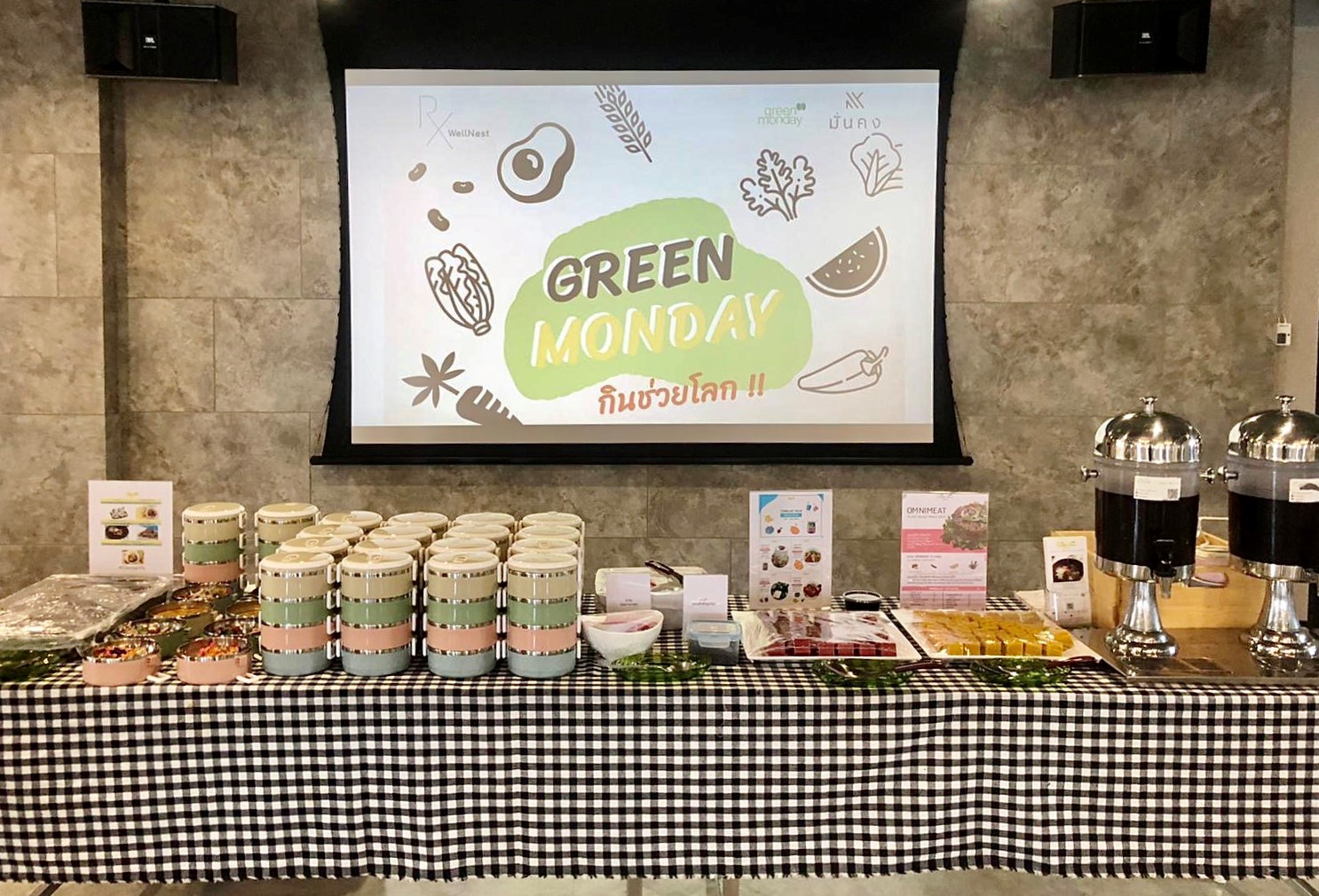
Distinct from Beyond Meat, which markets itself as being soy-free, OmniMeat is made of non-GMO soy, pea protein, shiitake mushroom, and rice. David boasts about its nutritional value – as well as being totally vegan, all-natural, hormone-, antibiotic- and cruelty-free, it is 70% lower in saturated fat and 65% lower in calories than real pork, and contains more fibre, 33% more calcium, 53% more iron, and zero cholesterol. David summarises by calling his prized plant-based food miracle “a super meat and a diet meat”, and he isn’t wrong.
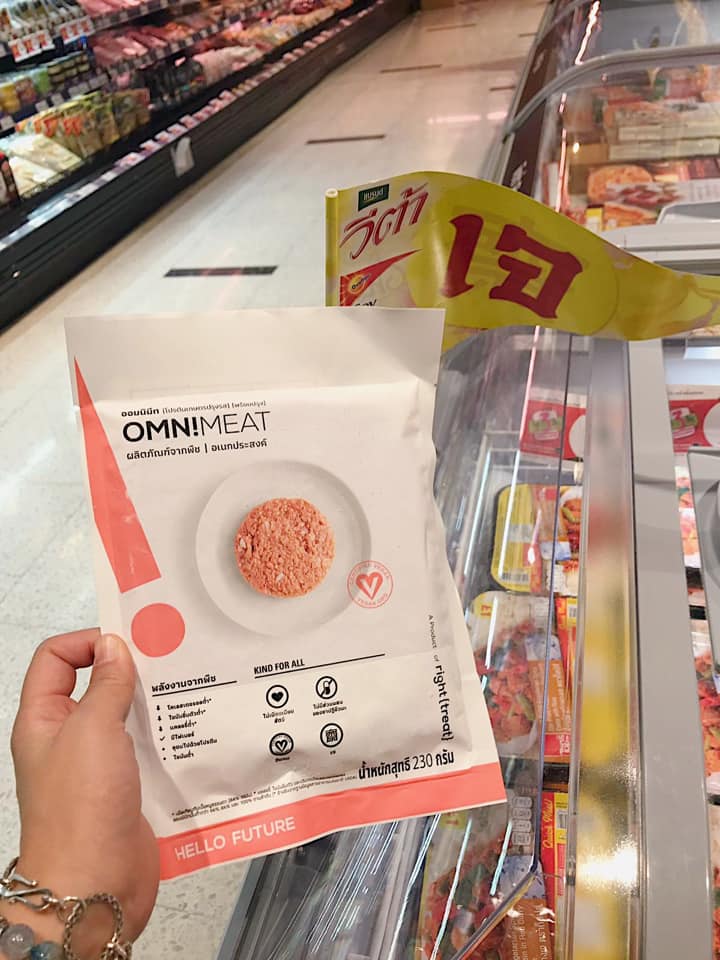
A Columbia University graduate and Ashoka Fellow, David received the World Economic Forum’s Social Entrepreneur of the Year award in 2018. Reflecting on that and the journey that he has been on for the past seven years, David explains that the overarching goal has been to use business to solve social issues.
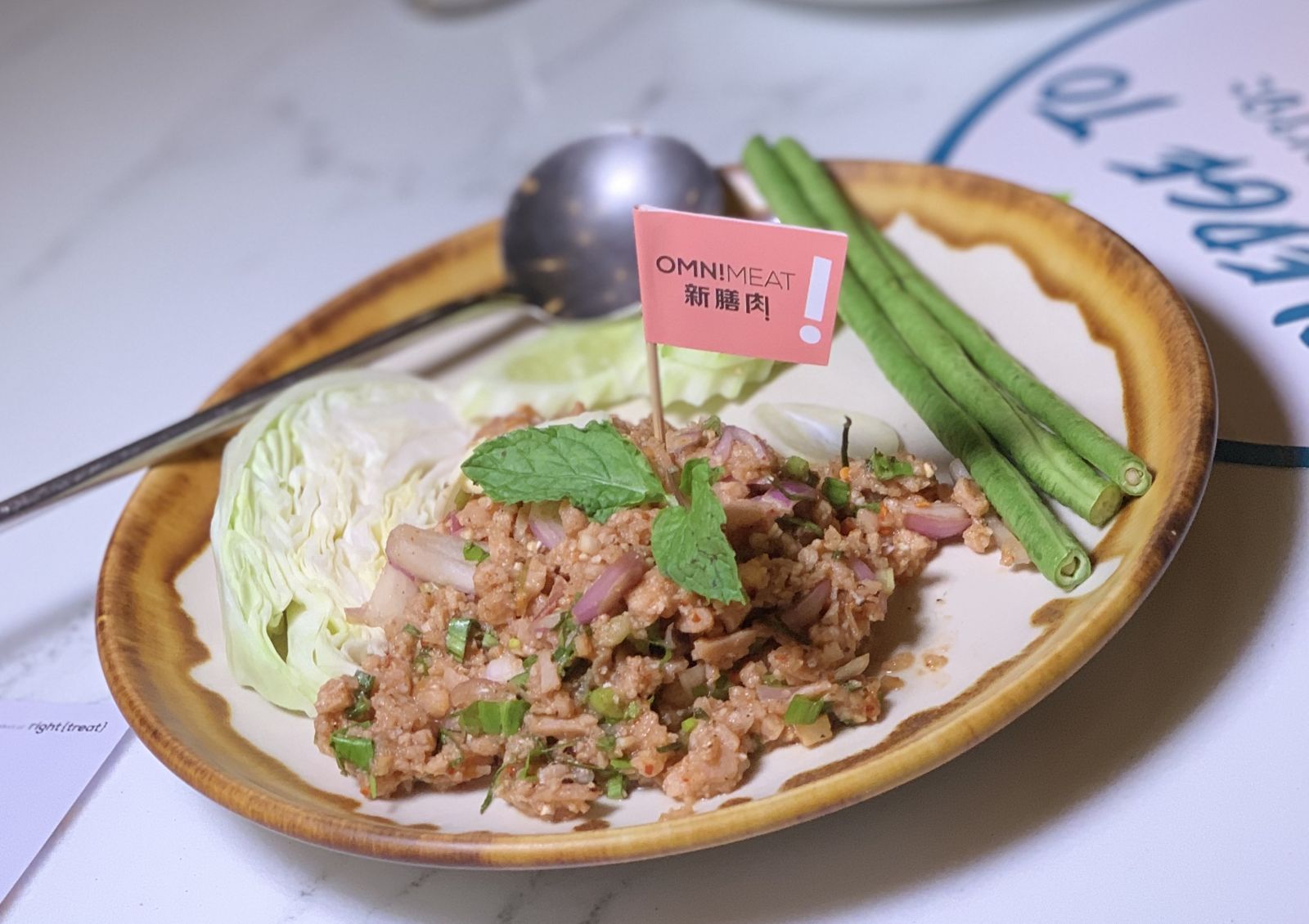
“Usually it’s food technology companies that come up with innovative products,” he says, “while groups like NGOs highlight problems and concerns without necessarily advocating solutions. Green Monday, on the other hand, is attempting to do both.”
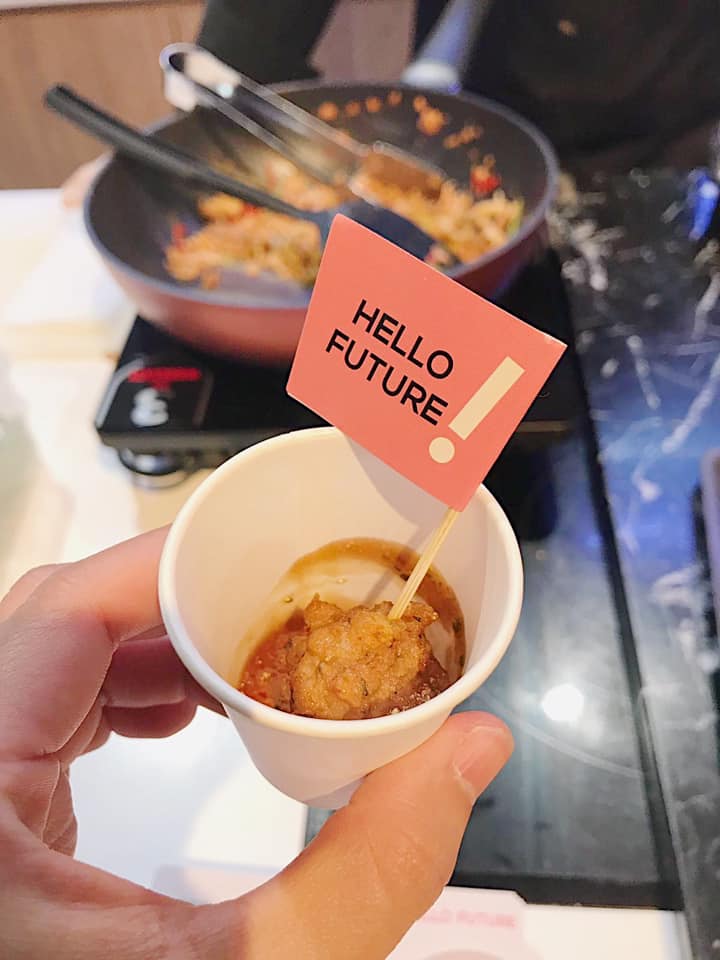
He says that comparing the reception he and his ideas received back in 2012 with the interest in Green Monday today is like “night and day”. There was, and to some extent still is, a stigma around the concept of vegetarianism, he says – and a sense of it being old-fashioned and having religious and health connotations.
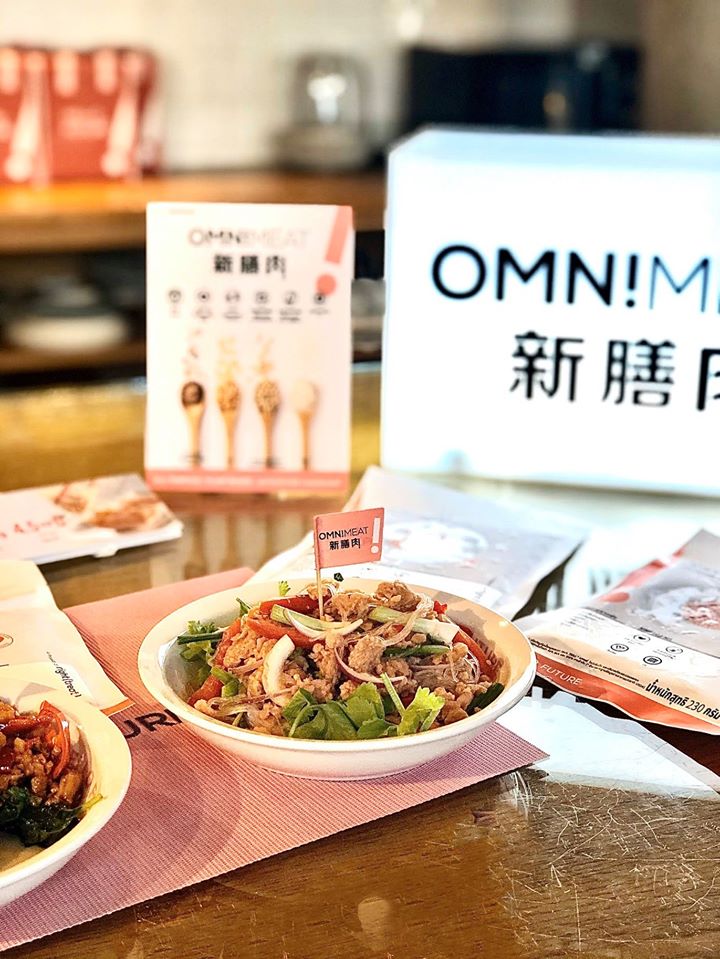
Over the years he has been asked questions of varying absurdity regarding his personal motivation for becoming vegetarian – once, if the next step would be for him to become a monk (his answer: “No, I just care about animals and the world.”). Confronting all of these preconceptions means that he has always reasoned the company started not from “ground zero” as most do, but rather from “ground minus 100”, and that just getting to an even standing was akin to moving mountains.
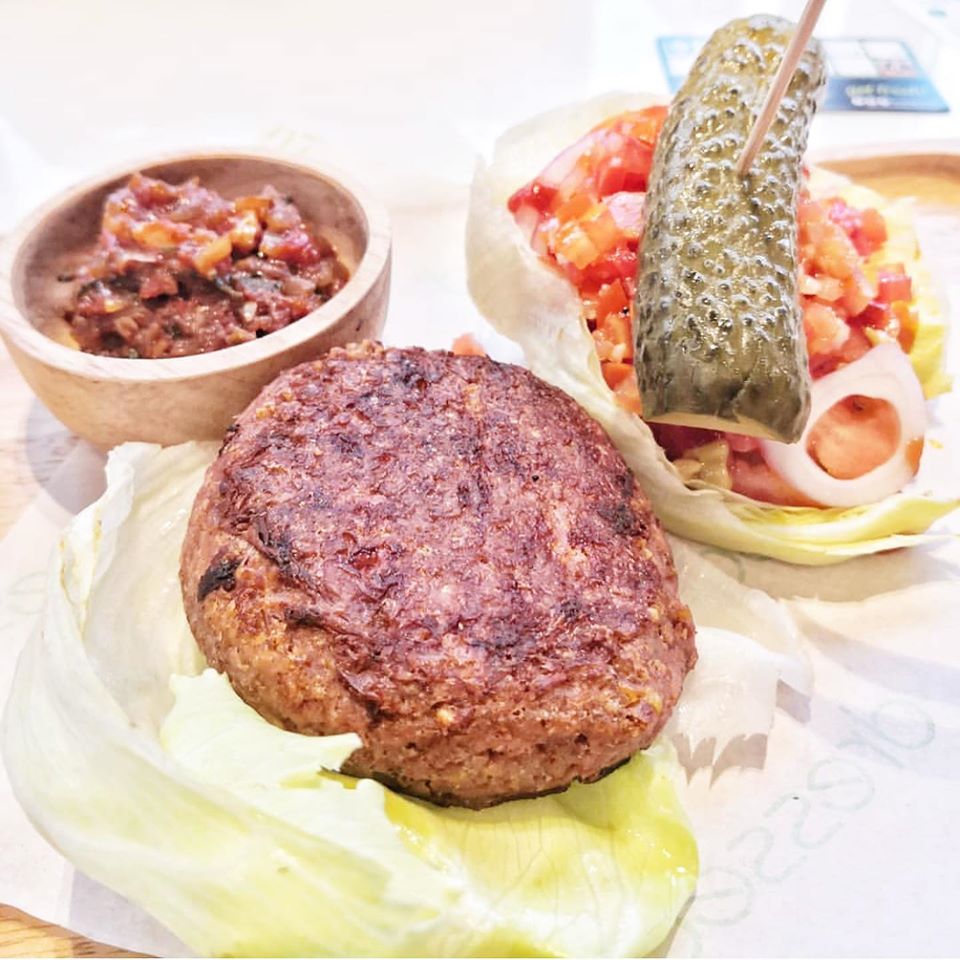
Such days are past. OmniMeat’s Thailand launch has large supermarket and other retail chains, a Michelin-starred chef and numerous celebrities and influencers on board, while David says restaurants are fighting to be able to add dishes to their menu that are inspired by the now famous Beyond Burger™. At the heart of the “tipping point” in the public’s embrace of plant-based foods, David says, are “active and outspoken” millennials and representatives of generation Z, who are keener than ever to make ethical responsible and sustainable choices – and not even just when it comes to food, either.
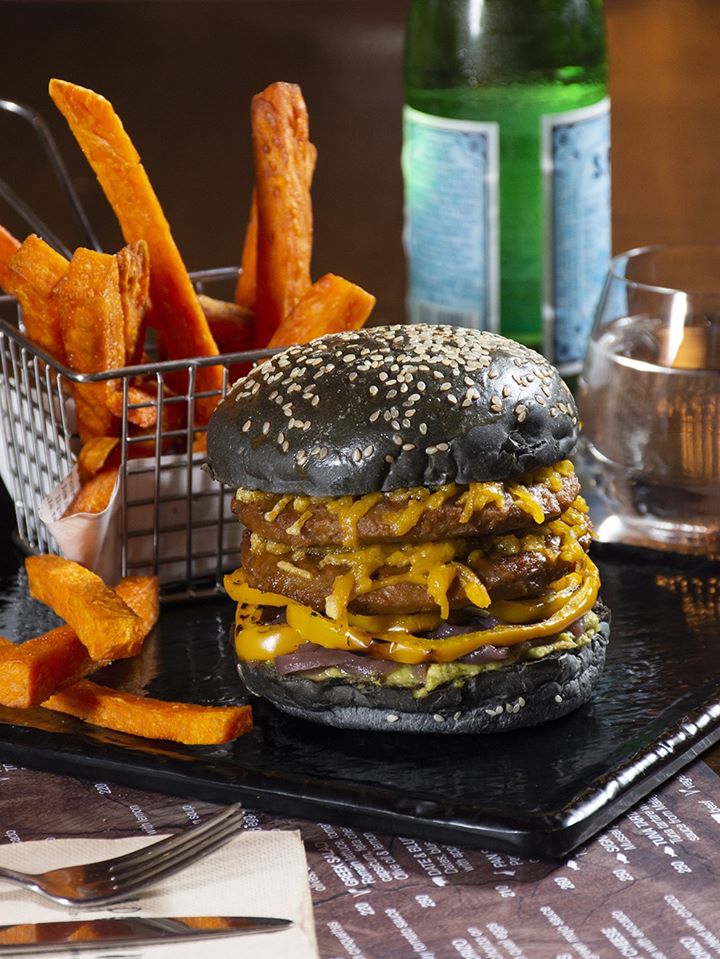
“After all, these are people who are keen on yoga – and after you practise yoga you don’t then tend to eat fatty, greasy food, or indulge in a massive buffet,” he says. “You eat avocado toast or you have a smoothie – and so OmniMeat is precisely the kind of food that complements that mindset.”
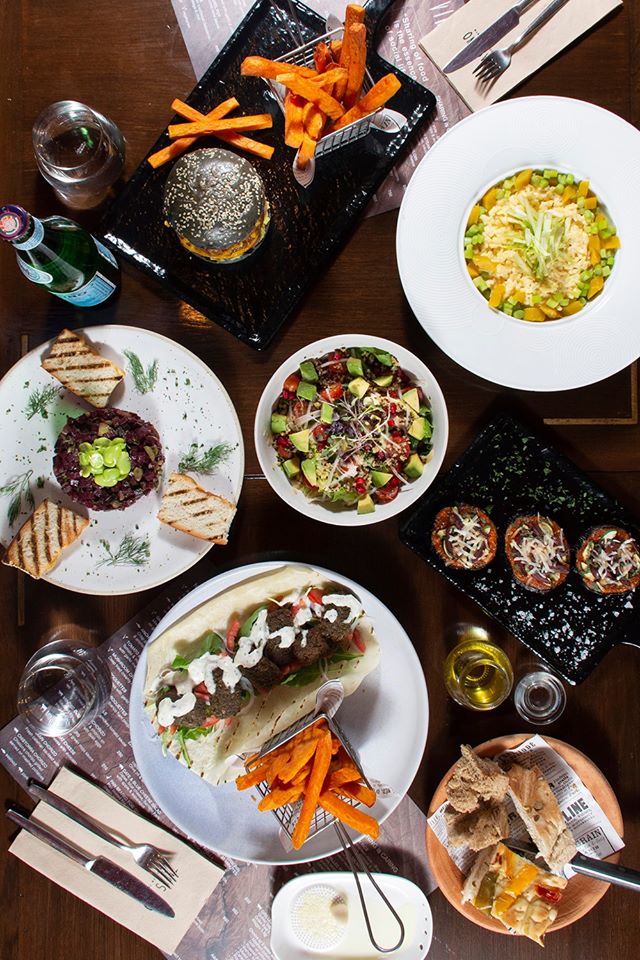
That kind of health-aware and environmentally conscious consumer will be just as important to the brand’s development as existing vegetarians and those who eat a flexible or mostly vegetarian diet, he says. He recognises that people primarily choose what they eat on the basis of taste and cost, not necessarily health benefits, and so he says the challenge is to continue to produce meat alternatives that are at once healthy, tasty and good for the planet.
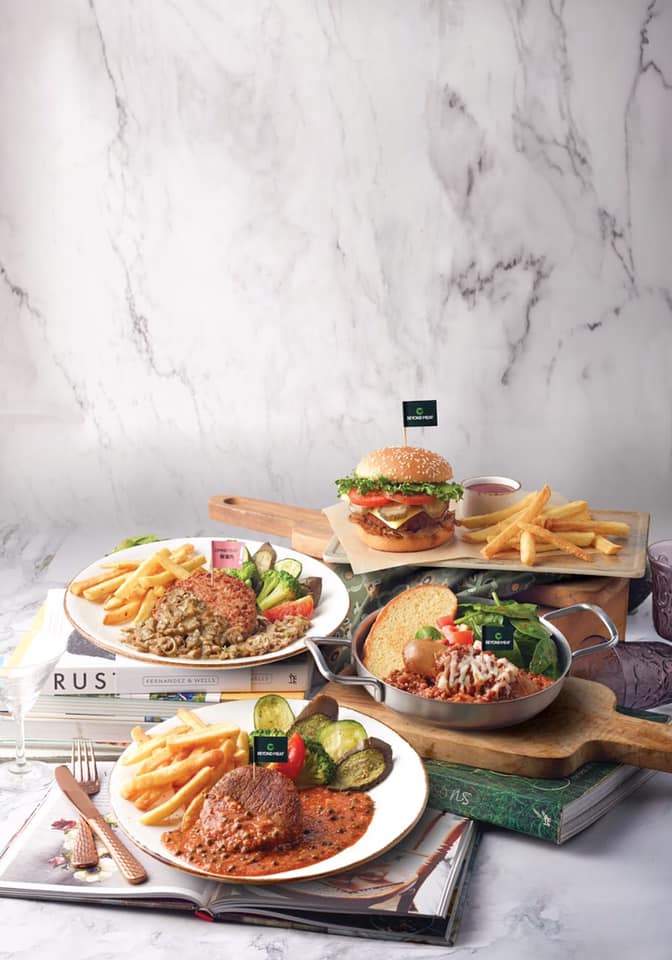
“That’s a game-changer,” he adds. “Seven years ago my motivation for founding Green Monday was my conviction to create something that is a win-win-win, where everyone benefits, and nowadays I continually remind myself and those I work with that we’re selling not just food but a change in lifestyle and mindset, shifting people from consuming bad for them, bad for the world and bad for animals, to something that is beneficial to all of us.”
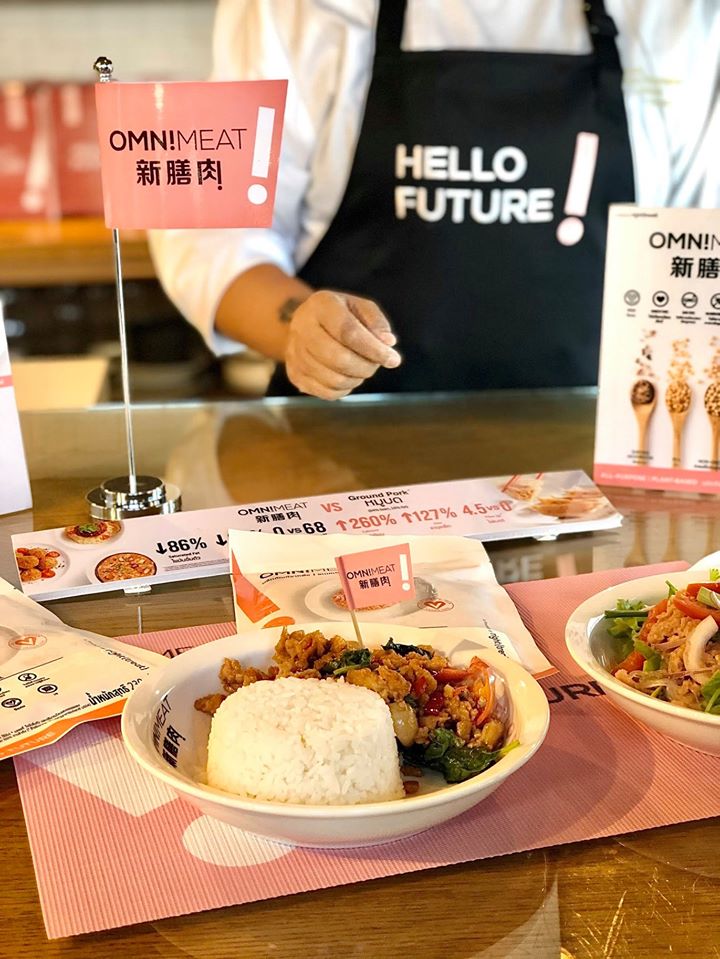
David’s passion for environmental issues is clear, and equally evident is his deeply held belief that this mainstream adoption of a more ecologically sustainable diet can’t come soon enough.
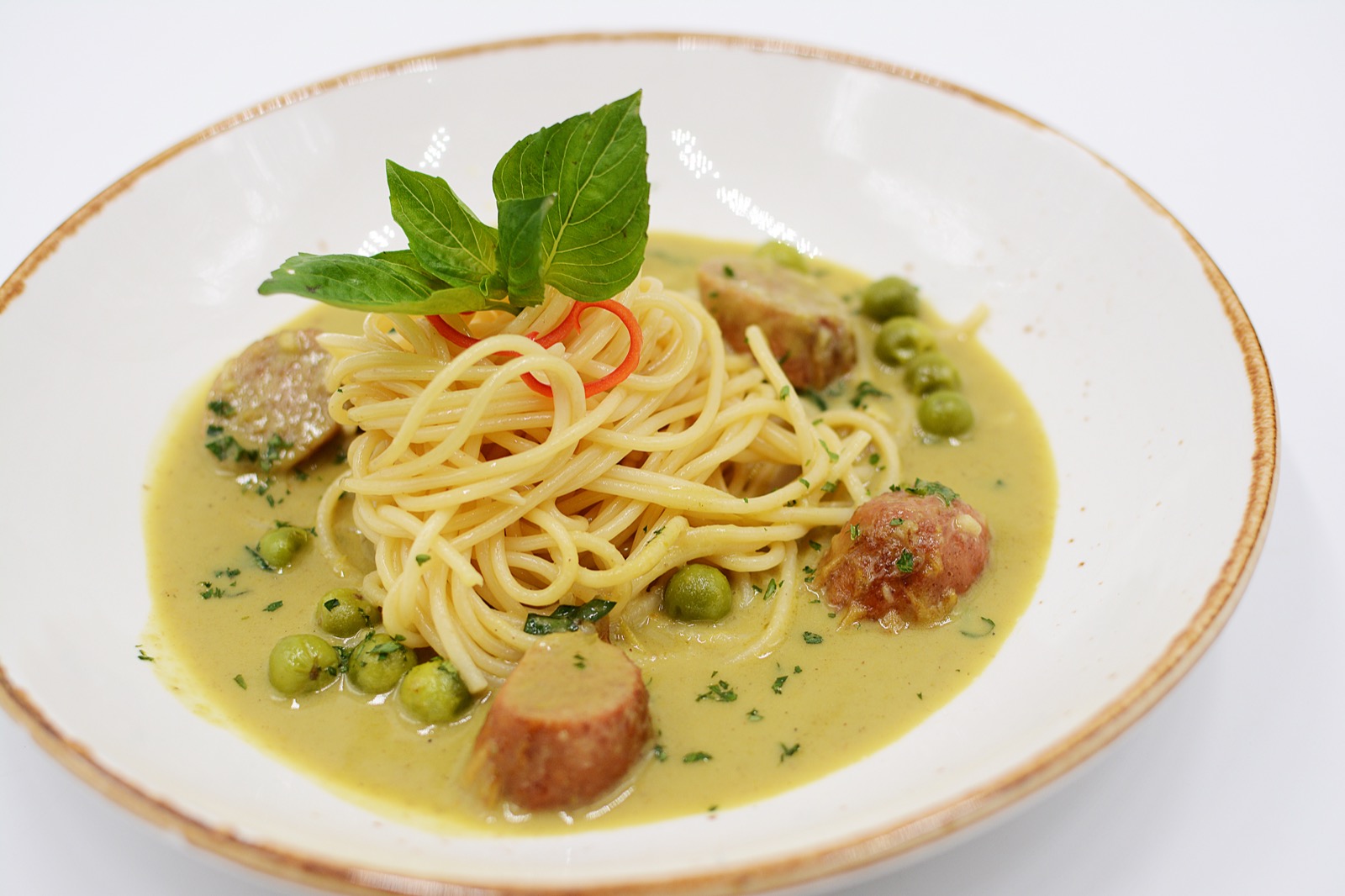
“We cannot wait,” he says, as he recounts a recent funeral-like ceremony held in Iceland, where he says a plaque was mounted to commemorate the loss of an iceberg. “The planet cannot wait. We’re on the verge of an irreversible crisis – the planet is almost at the point of no return. This year will be the hottest on record. Before much longer we will see catastrophic climate-related events – like the recent fires in the Amazon rainforest, or the historic levels of ice melting in Iceland and elsewhere – on a weekly or even daily basis.
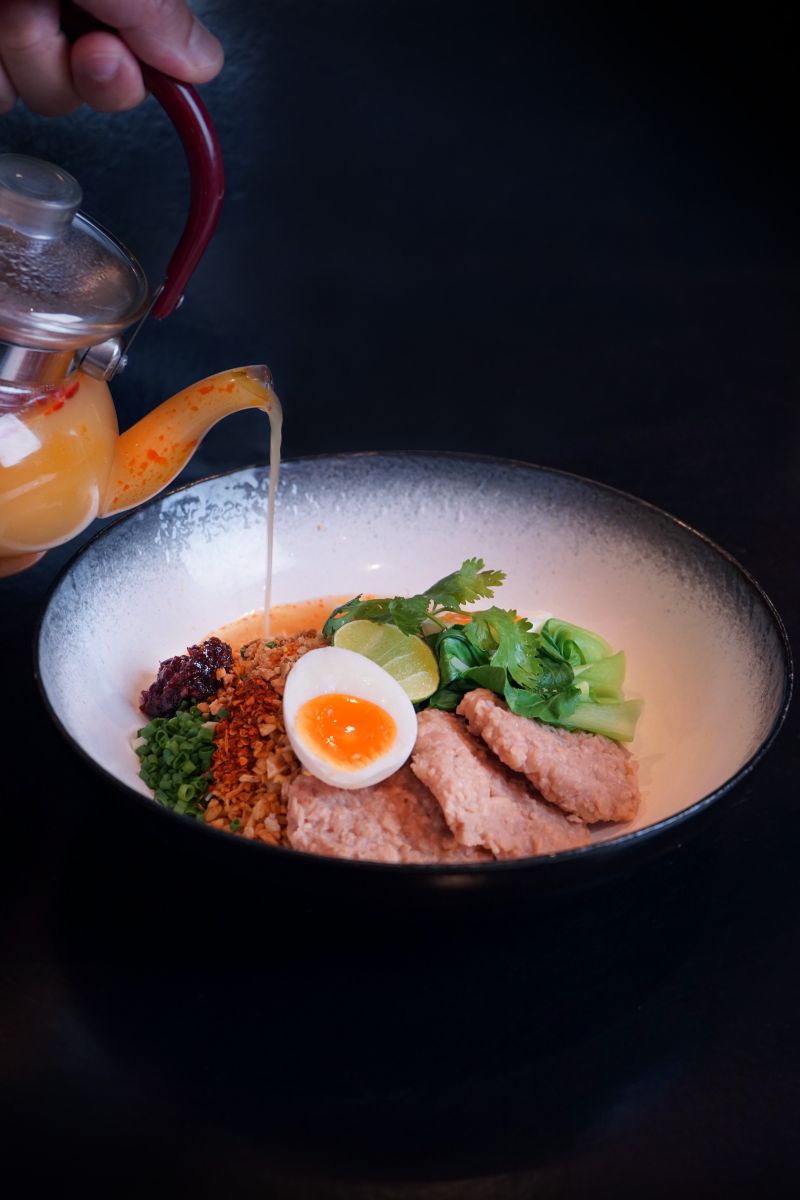
“In the last 100 years – equivalent to around three minutes in terms of our planet’s lifetime – the human population has grown from 1.7 billion to 7.7 billion, and it will continue to increase. We will run out of food, extreme weather will occur daily, sea levels will rise, Bangkok will see temperatures of 48°C to 50°C on a “normal” day, and parts of cities like Miami, New York and Hong Kong will come to resemble Venice.”
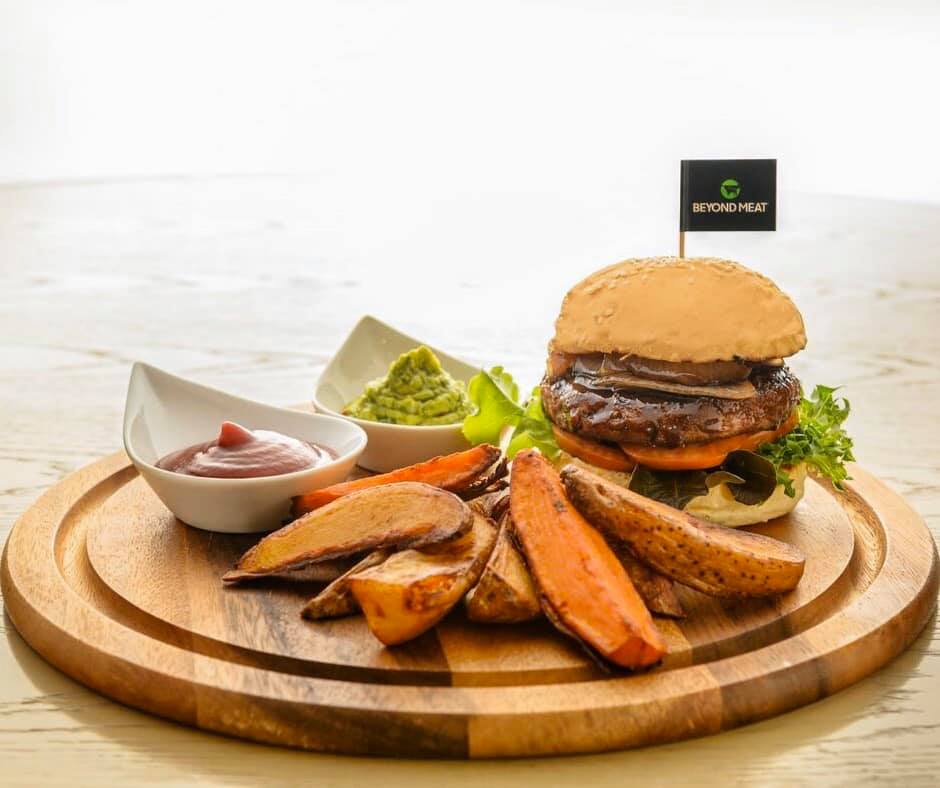
Plans are already afoot for a further pipeline for OmniMeat products, predominantly targeted at the Asian palate. Yet David points out that, even with pork, there are still plenty of culinary applications that the market has not yet explored – and nor does he rule out branching out into the realms of other meat substitutes like chicken, beef and fish in the future.
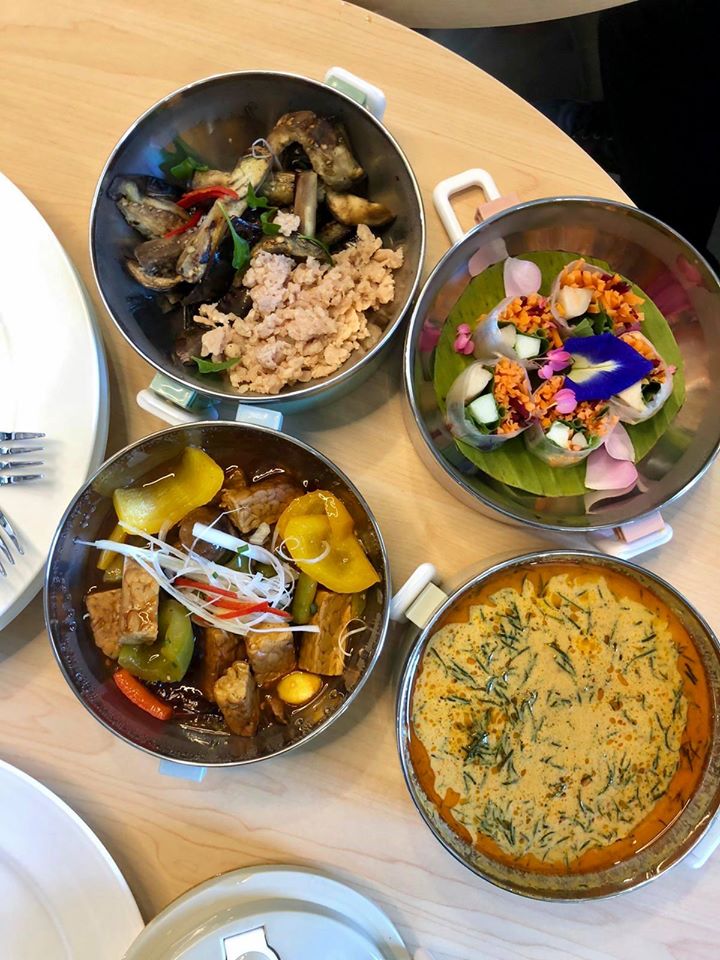
As well as its base of Hong Kong, the company currently supplies its products to six other Asian markets – Taiwan, China, Thailand, Singapore and the Philippines – and will soon add Vietnam, Japan, Korea and Indonesia to make that 10. The global nature of Asian food, David also notes, means that there is no real reason for OmniMeat not to also expand as far afield as the European, North American and Australian markets. Indeed, David says OmniMeat is already pitching to – or being sought out by – Chinese and Japanese restaurants the world over. “Asia is our base, but we’re a global platform,” he says.
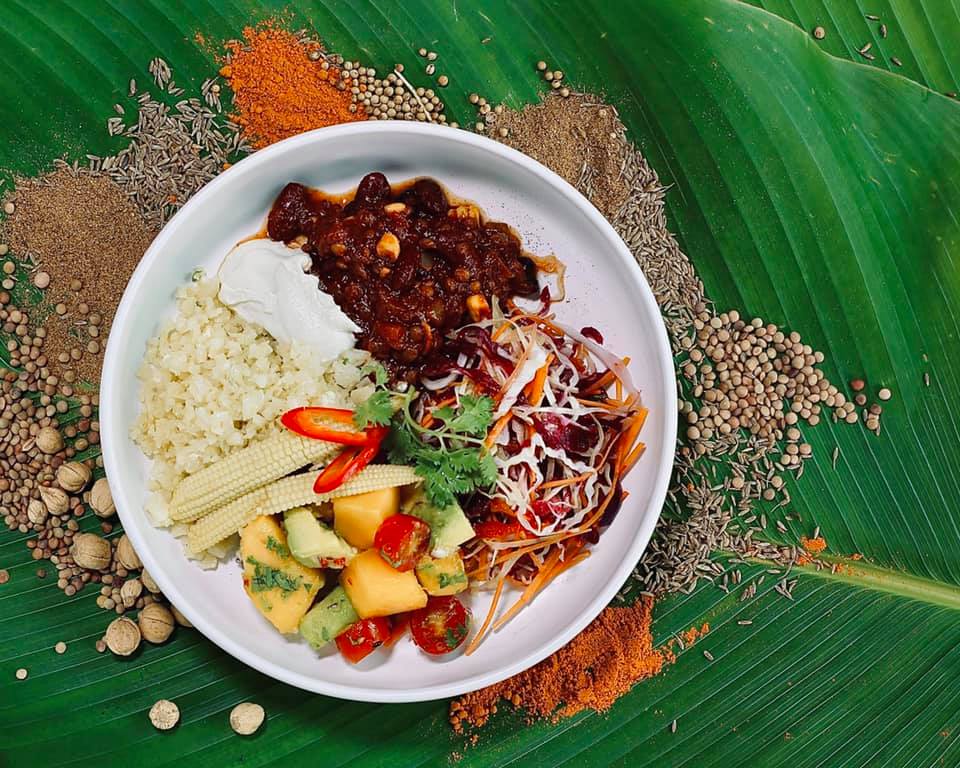
An especially high-profile China launch is on the horizon. It will see a Green Common store launch on the online Alibaba Tmall platform, providing its products to consumers mainland China-wide. David is positive about the possibility for that to allow the business to “scale up its reach exponentially”, but he is no less upbeat about the equally glitzy kick-off of Green Monday’s and OmniMeat’s Thai operations.
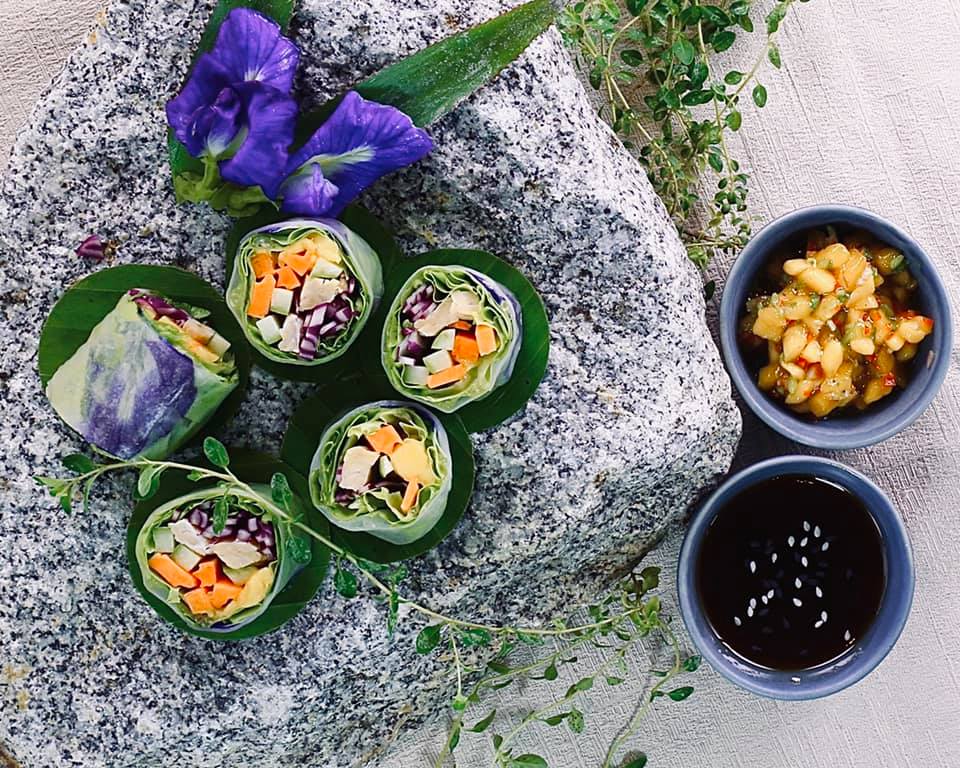
“Thailand is a predominantly Buddhist country and, with the large-scale vegetarian festival taking place annually, the idea of eating vegetarian and vegan food is already built into the culture – although the innovative element of it isn’t there, and what’s being eaten now isn’t the most exciting food.” He says that bringing new ingredients, and partnering with Michelin-starred chefs, plus names like the Grand Hyatt hotel, Sizzler, S&P and Central – will assist in his aim of bringing the OmniMeat range mainstream as he has been able to in Singapore, Hong Kong and Taiwan.
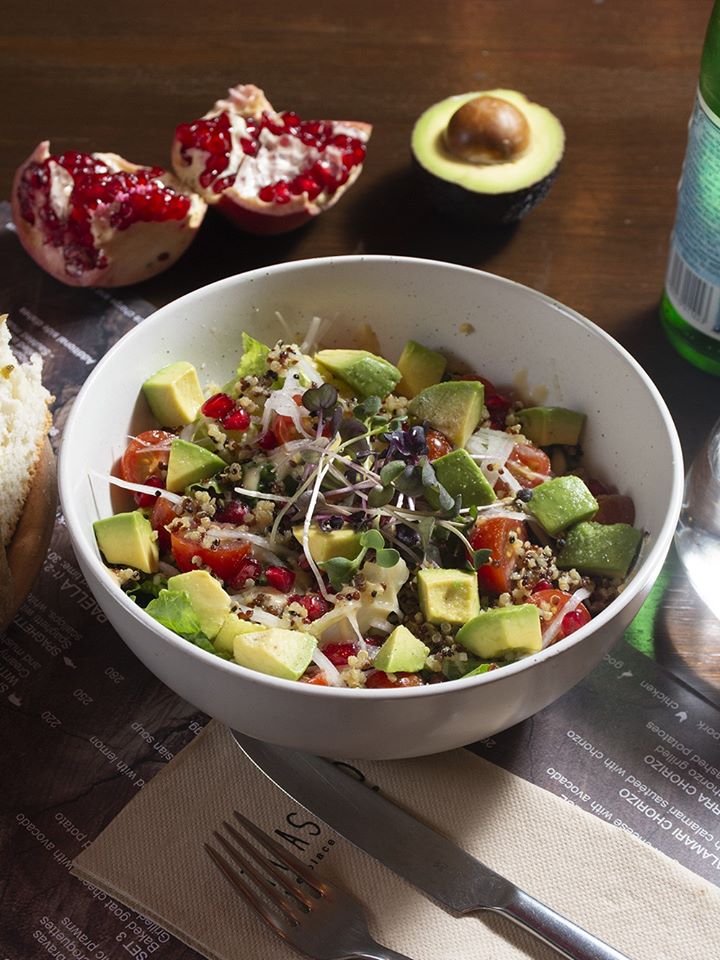
That’s not to say that David’s endeavours have been without their challenges. He is open about the difficulties involved in tapping into the Asian market, not least because of the diversity of its different national segments. “I joke with my American partners about how tough it is to conquer Asia, what with its various languages, cultures, legislative requirements, local palates and styles, tax and tariff requirements, and so on.
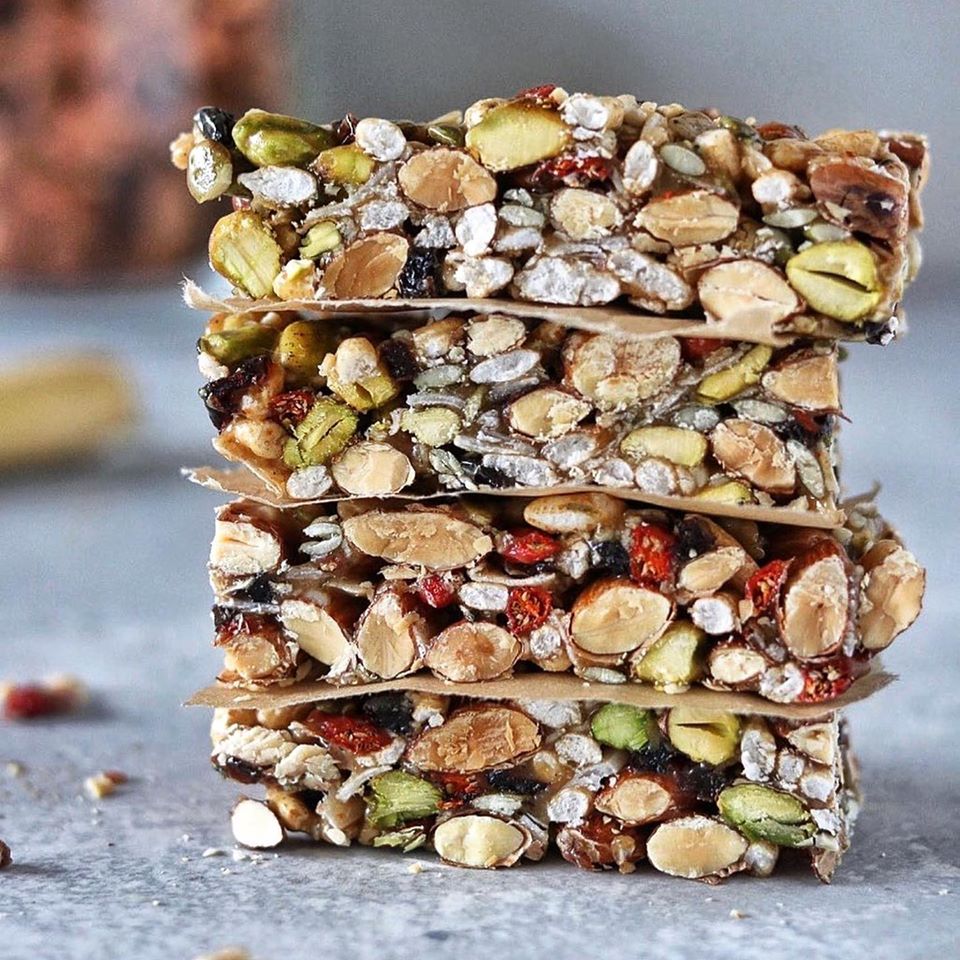
“Asia is harder to crack than huge, more easily scalable markets such as the United States, and getting to where we are has involved rounds and rounds of hurdles – it’s mind-boggling to think that we’re actually making it happen. We could have quit for a million reasons, or made our lives easier by doing things a different way or approaching it more half-heartedly – but instead we went all in.”
.jpg)
The result of all that work, David says, is a platform that in the future will enable partner manufacturers to scale and go to market far more quickly and easily, with much of the legwork having been done for them. That will include being able to showcase their products in vast numbers of supermarkets and restaurants across almost a dozen countries. “That means we can scale up the impact of what we’re doing more quickly,” David adds. “That’s a good thing, because we’re racing against the clock when it comes to climate change.”
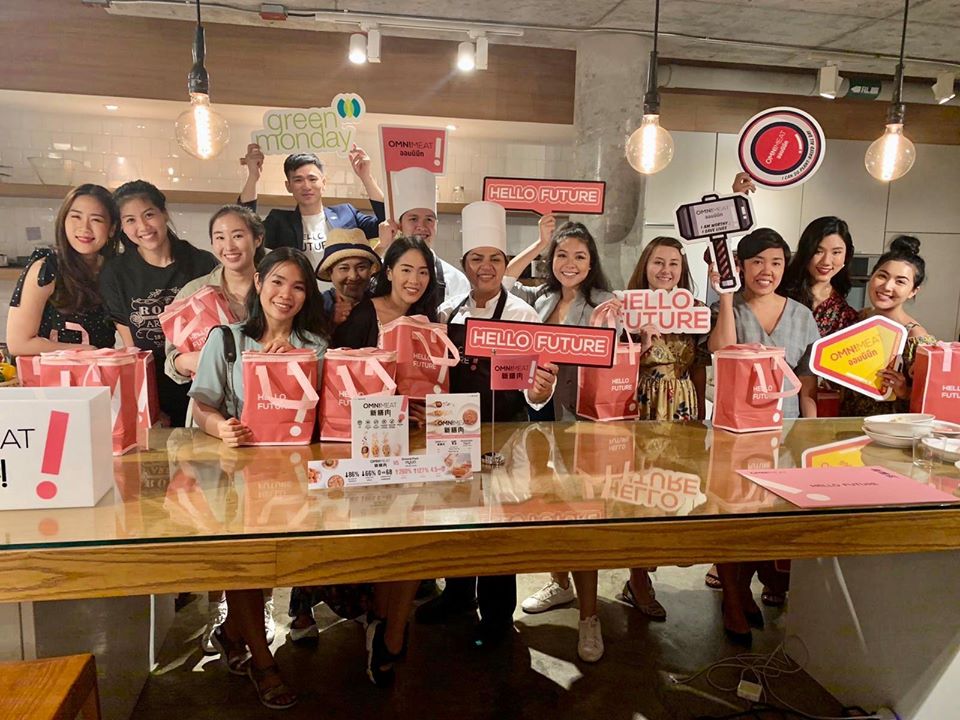
In the same vein, he doesn’t see the prospect of other likeminded companies as a threat, but rather as an opportunity for further collaboration. He says there is already an increase in the number of food technology startups around the world, and he foresees this area growing further, but he anticipates that Green Monday’s positioning as an all-encompassing platform is what will help differentiate it in the future.

“Those players can join us and work together – the more players in the space, the better. Just like investing in China 20 years ago, or in the internet and mobile industries, I see sustainability as a 30-year mega-trend that will continue to develop. We’re going to see not just consumers as our customers, but also larger companies and governments, in the same way that states are already investing in renewable energy and green infrastructure.
.jpg)
“In a way it’s sad because, just as an ageing population drives growth in the pharmaceuticals sector, it is the fact that our planet is dying that means the sustainability industry is booming.
.jpg)
But that’s the environment that we are in – and we just have to hope that all the bad news whips people up, and that the industry thrives enough to offset the destruction before it’s too late.”
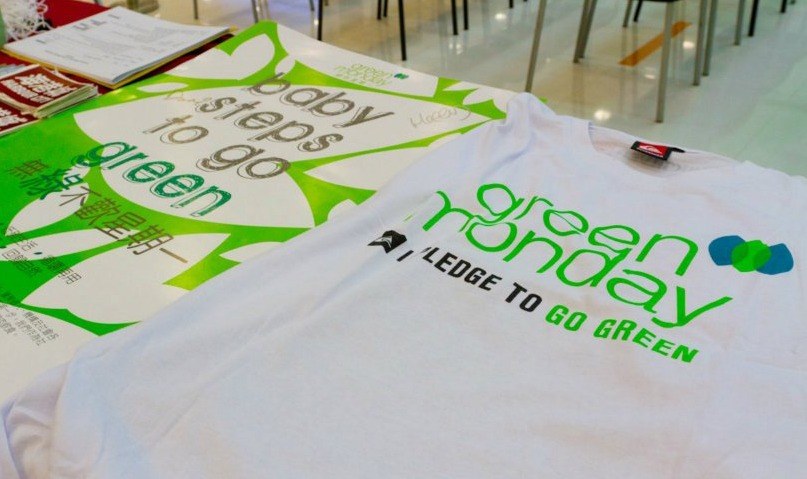
"Elite Plus Magazine" ( October/ November 2019 Issue) Available***
- Where to get your own books:
At every branch of ***Asia book Stores***
or contacts Line: @eliteplusmagazine


